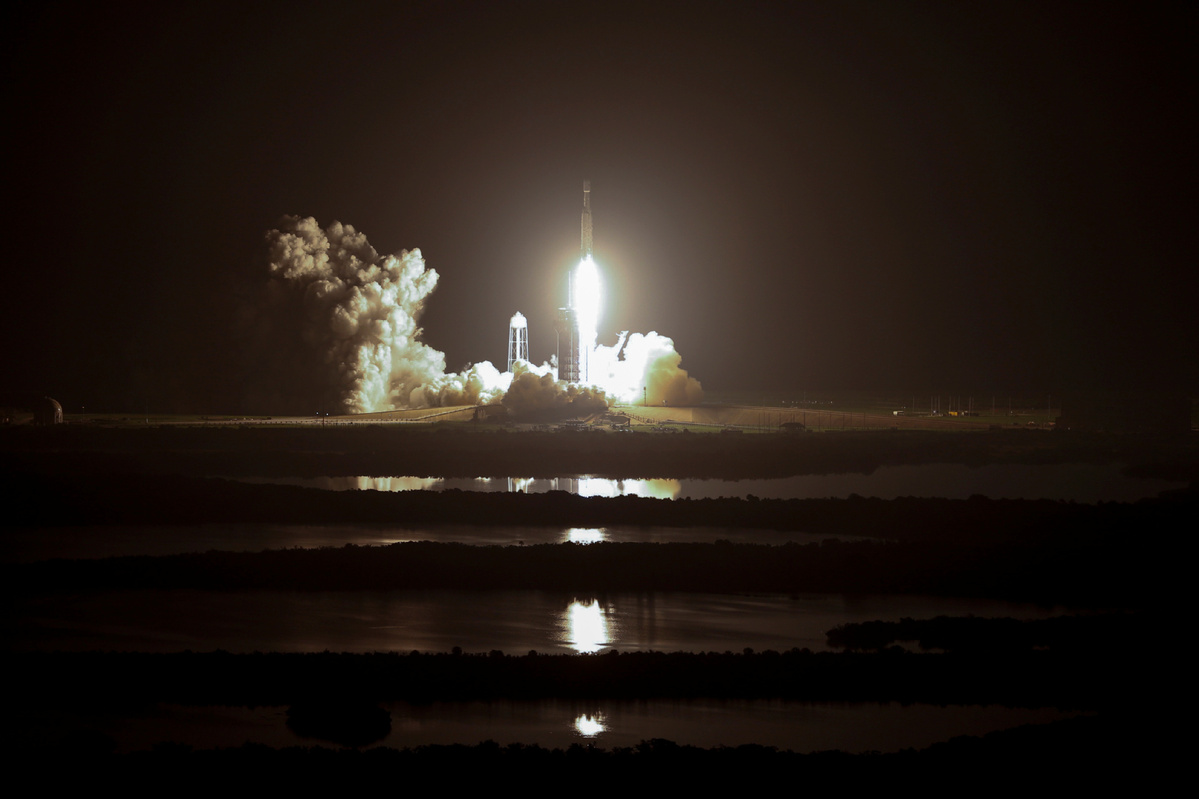SpaceX launches rocket with 24 satellites
Xinhua | Updated: 2019-06-25 15:07

WASHINGTON - The US private space company SpaceX launched its rocket Falcon Heavy on Tuesday carrying 24 satellites into three different orbits in the "most difficult ever" mission.
The Falcon Heavy, the world's most powerful operational rocket, blasted off from the Kennedy Space Center in the US state of Florida at 2:30 am Eastern Time (0630 GMT). This is Falcon Heavy's third launch and its first nighttime launch.
The mission, dubbed STP-2 for the Department of Defense's Space Test Program-2, is one of the most challenging launches in SpaceX history, owing to four separate upper-stage engine burns, three separate deployment orbits and a total mission duration of over six hours, according to SpaceX.
The spacecraft deployments began about 12 minutes after liftoff, the company said. The deployments are expected to last more than three hours.
The rocket also reused the recovered side boosters from the last Falcon Heavy launch in April, according to SpaceX. Side boosters of the reusable rocket had been recovered nearly nine minutes after the liftoff, but its center core stage landing seemingly failed afterwards, according to the live broadcast.
The STP-2 mission brought into orbit a deep space atomic clock, a solar sail, a clean and green rocket fuel testbed, and human ashes.
The clock, a toaster-size device, is the first GPS-like instrument small and stable enough to fly on a spacecraft. The new technology of the clock enables a spacecraft to know where it is without needing to rely on that data from Earth, paving the way for deep space travel, according to NASA's Jet Propulsion Laboratory.
Also, the Planetary Society's LightSail 2 was deployed, which will navigate its orbit using pressure from light particles hitting the sail.
Another payload is the high-performance propellant, developed by the US Air Force Research Laboratory. The "green" and more effective fuel can be an alternative to hydrazine, the highly toxic fuel, according to NASA.
A Houston-based company bought some space in the rocket, bringing the ashes of 152 dead people into orbit to have a "space funeral."
























